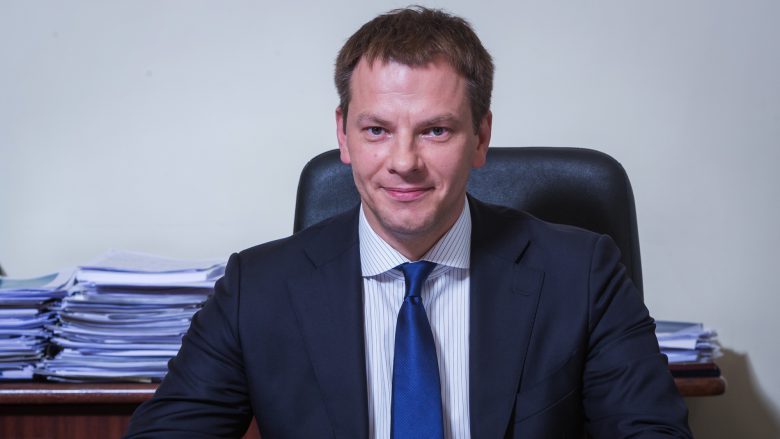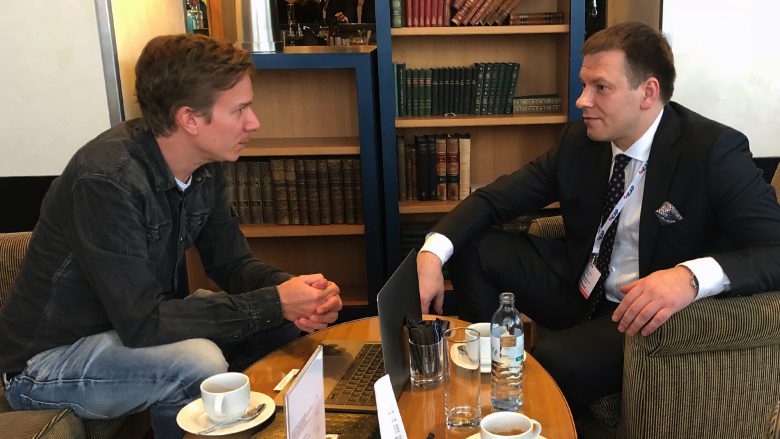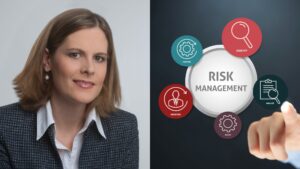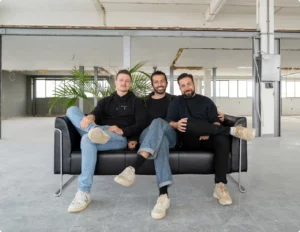Lithuania´s Minister of Finance: „FinTech is about the people’s needs, banks are about banking“

In the race to become the next Silicon Valley, the small country Lithuania at the border of the European Union, has a plan of its own. Lithuania, like a number of other countries all around the globe, wants to become an international hub for FinTech and blockchain companies. It’s approach is to reward companies with low taxes, offer an easy-access Startup Visa and promise the fastest licensing process for financial institutions to attract FinTech companies. Most recently, it’s launched a blockchain sandbox platform-service for both domestic and foreign entrepreneurs. As matters stand now, Austria’s new government is also planning to establish Blockchain sandboxes.
The strategy seems to have paid off. In 2017, for example, the British FinTech startup Revolut settled in Lithuania, opening a local office and hiring a team on location. Its master plan: Revolut wants to get a proper banking license in Lithuania to be able to offer credit and deposit services to the more than 1 million users it currently counts across Europe (more about Revolut here). Lithuania’s Finance Minister Vilius Šapoka visited Vienna last week to further promote the country as an emerging hub for FinTechs and met with the interest group FinTech Austria.
Meeting at the Euromoney Conference at Vienna’s Hilton Hotel by the Stadtpark, Trending Topics sat down with Mr. Šapoka to discuss his strategy regarding FinTech and blockchain startups, his opinion about the recent Bitcoin hype and the relationship between FinTech companies and traditional banks.

Why and how is Lithuania luring FinTech companies to the country?
Vilius Šapoka: The main reason is that customers really take care. I am a fan because the ecosystem was already in place and we decided to remove unnecessary barriers in order to draw this very productive industry. We have very productive people in this field and we decided that this is the right path to go. And it has proofed completely that this way was right. We are very successful in that area. A few figures: In one year we managed triple the number of institutions and doubled the number of specialized companies in this industry. We have major market partcipants who have their innovation offices in our country like NASDAQ, Uber, Barclay´s, Scandinavian banks and Western Union. The infrastructure is already in place. We have the fastest internet, the fastest Wifi in Europe.
Developing the FinTech industry is like a game of puzzle that is in front of you and you try to fill the missing parts. What we did in addition compared to other countries: We are the first country in the world which allows non-bank participiants to take part in the central bank, we give money for transactions and have got a newcomers program at the central bank for FinTech companies to consult them. We got a sandbox and a platform for blockchain companies, where companies can experiment with blockchain related services.
At what point did you decide to become a hub for FinTech companies?
It wasn ́t a coincidence. We just distinguished that the ecosystem, for exmaple for medtech and FinTech where already in place. We set a lot of incentives in the area of taxes and for companies that invest in new technologies, research and development. If you invest in R&D you can deduct your sum of taxes by three times. If you invest a lot you pay zero of profit taxes. If you commercialize inventions then you pay just five percent of profit taxes. This package is the best in most of the levels.
The Bank of Lithuania promises the fastest financial institution license for FinTech companies in EU. For example, the British FinTech startup Revolut applied for one of these licenses. ow does that work?
The licensing process, if you look to different countries, can take months or years to legitimate your business. We have a clear commitment that the license will shoot as fast as possible. The resources are allocated for a smooth process of licensing. This approach of the central bank is very positive. It isn ́t without risks, but it ́s a different approach. The regulator works with new companies and they learn a lot about the companies.
Is there a goal? How many companies are you trying to get into the country?
Lithuania will grow by numbers. Hundreds of companies will establish their business in Lithuania. It is evident. There are applications from different businesses from Singapore, China, the United States, and Europe as well.
What´s in it for Lithuania? Do you want to create more jobs, bring more tax payers to the country, lure more investors?
All these aspects are true. And on the top of that I really want to take steps how the country can be renewed. You can ́t find another country where the FinTech are number one priority.
There´s a lot of hype around Bitcoin and crypto currencies. Your take on that?
My personal opinion: These are financial assets. This is a new thing. Nobody has a clue how to regulate this asset. Of course it will be regulated, the one way or the other. We cannot ignore this process, but we cannot squeeze this turnover too. But regulatory checks and balances will be needed. The market really need some red marks, otherwise it will be just another bubble.
Some say that too much regulation is bad for innovation. Do you agree?
I do believe that there can be a balanced approach. We should have a clear room for creativity in this field because FinTech will change this field completely.
Lithuania is offering sandboxes for companies that work with blockchain? How does that work?
The process is very simple. You should meet with the central bank, apply to be part of this platform and then you can experiment with the plattform. We have five blockchain centers in Lithuania. This field is also a very promising technology.
How will Blockchain transform the industry?
It is always very difficult to predict how technology which will influence the future. What will be in the end, nobody can say. But from the technological point of view it is a very successful technology which can change the way we look at transactions.
Your neighbour country Estonia wants to issue its own crypto currency? Your take on that?
Marketing is a good thing. But marketing is not enough. At the moment I do believe it’s only marketing. We are focussing on removing unnecessary barriers for companies, for creativity and businesses.
FinTech companies are said to be challengers to traditional banks? Will FinTechs and banks be competitors, or will they become partners?
When we talk about banks we talk about stability, liquidity, too big to fail. When we talk about FinTech, we talk about consumer interest and how they can be aligned with consumers needs. Fintech is about the people’s needs, banks are about banking. Banks and FinTechs will find areas where they work together. But FinTechs are faster, decisions are made faster, and this will increase the competition.





























